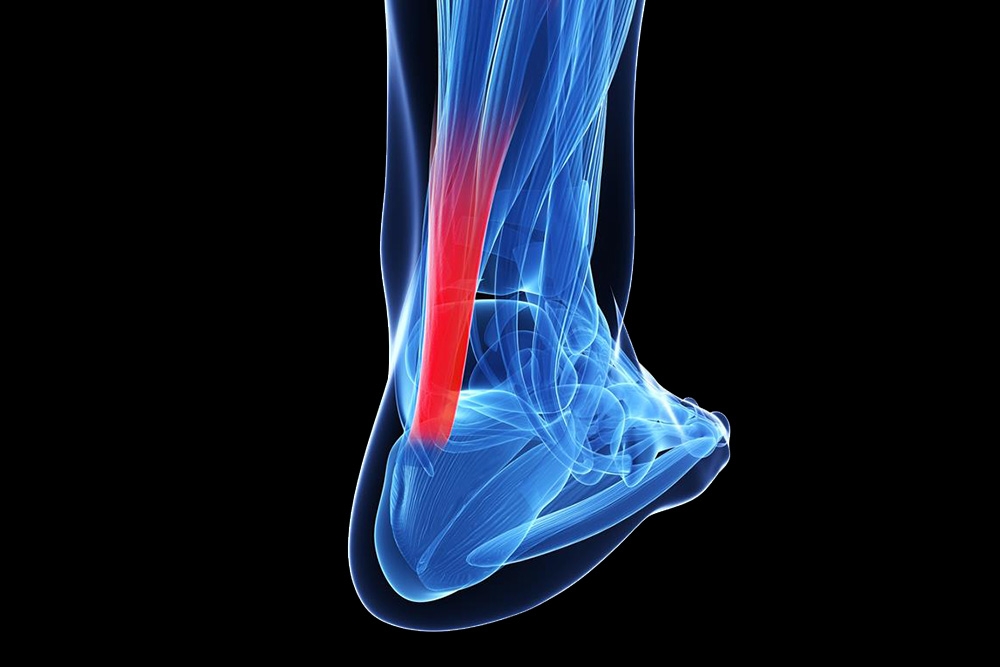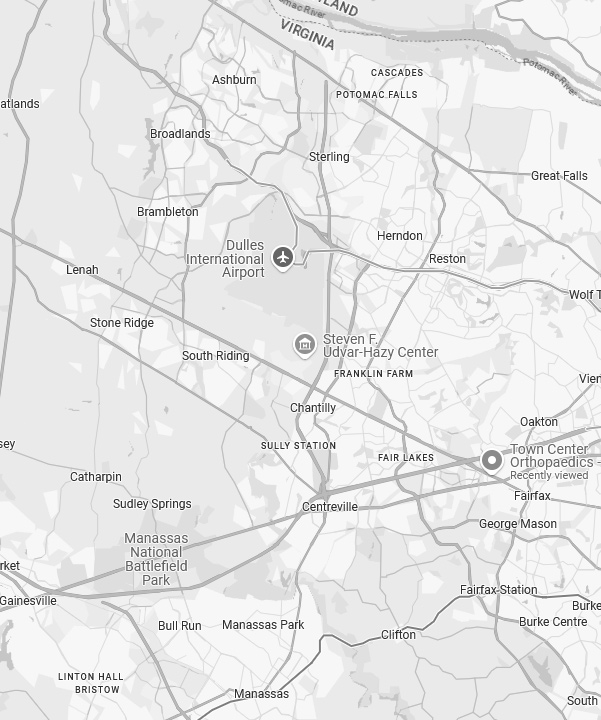Whether you’re a weekend warrior, a rising star, or a seasoned pro, an achilles tendon rupture can be a devastating blow—both physically and emotionally. This powerful tendon connects the calf muscles to the heel bone and is essential for walking, running, and jumping. When it ruptures, it’s not just painful—it can end a season instantly.
Recently, high-profile athletes like golf legend Tiger Woods, NFL star Aaron Rodgers, and NBA player Dejounte Murray have all experienced a ruptured Achilles tendon, reminding us that even elite athletes are vulnerable to this serious injury. Achilles injuries affect approximately 1 million athletes per year.
At Town Center Orthopaedics, we understand how important it is to diagnose, treat, and rehabilitate this lower extremity injury properly so that athletes of all levels can get back in the game.
What Causes an Achilles Tendon Rupture?
The Achilles tendon is one of the strongest tendons in the body, but it’s also one of the most commonly injured, especially during high-impact sports like basketball, football, and even pickleball. Sports that involve quick accelerations, rapid changes of direction, or sudden jumping and landing put particular strain on the tendons.
A rupture typically occurs about 2 to 6 cm above the heel, with limited blood supply. Common causes include:
- Sudden, forceful push-off (like jumping or sprinting)
- Overuse or chronic tendonitis
- Age-related degeneration (most common in people aged 30–50)
- Metabolic conditions such as diabetes
- Use of certain medications like corticosteroids or fluoroquinolone antibiotics
Warning Signs To Watch For
Many patients report experiencing mild Achilles pain or stiffness before the injury. These are early signs that the Achilles tendon is about to rupture and shouldn’t be ignored.
When the tendon ruptures, symptoms include:
- A sudden “pop” sound or feeling in the back of the ankle
- Sharp pain at the time of injury
- A sensation like being kicked or hit in the back of the leg
- Swelling, bruising, and difficulty walking
- Inability to push off or rise onto toes
If you experience these Achilles tendon rupture symptoms, seeking an accurate diagnosis is vital. Delayed treatment can lead to long-term weakness, stiffness, and re-injury.
Achilles Tendon Rupture Treatment Options
Early diagnosis from an experienced orthopedic specialist is key. Depending on your age, activity level, and medical history, both surgical and nonsurgical treatments can be highly effective.
Surgical Treatment
Surgery involves suturing the torn tendon back together. In some cases, additional reinforcement using anchors or grafts may be necessary. Surgery may offer the best chance of a full return to sport for younger or highly active individuals.
Nonsurgical Treatment
For patients who are at higher risk of surgical complications or prefer a nonoperative route, immobilization with a cast or boot in plantar flexion (toes pointed down), followed by a structured rehab plan, can also be successful.
The Critical Role of Rehabilitation
Regardless of the treatment path, rehabilitation is just as important as the repair itself. After surgery or immobilization, physical therapy helps restore strength, mobility, and function.
Initially, rehab avoids stretching the tendon excessively (no dorsiflexion). Gradual progression includes:
- Weight-bearing in a walking boot
- Gentle strengthening exercises
- Balance and proprioception training
- Sport-specific drills when safe
Following a proper rehab protocol under the guidance of an experienced physical therapist is essential for minimizing re-injury risk and optimizing your return to play.
Achilles Tendon Rupture Recovery Time
While every patient is different, most people can expect:
- 6–8 weeks of immobilization or protected weight-bearing
- 3–6 months of progressive physical therapy
- 9–12 months for a full return to high-impact sports
Athletes should work closely with their orthopedic specialist and therapy team to monitor healing and avoid returning too soon.
Can You Prevent an Achilles Tendon Rupture?
There’s no guaranteed way to prevent this injury—just ask the professionals. But there are steps you can take to reduce your risk:
- Warm up and stretch before physical activity
- Strengthen calf muscles and surrounding structures
- Avoid sudden increases in training intensity
- Cross-train to avoid overuse
- Pay attention to pain or stiffness—rest if needed
- Avoid medications linked to tendon weakness unless absolutely necessary
Don’t Wait—Get the Right Diagnosis and Care
A ruptured Achilles tendon doesn’t have to end your athletic journey. You can bounce back stronger with the correct diagnosis, effective Achilles tendon rupture treatment, and a thoughtful rehab plan.
Town Center Orthopaedics has a team of specialists experienced in treating sports-related injuries and guiding athletes through recovery. We’ll help you understand your options, protect your long-term health, and get you safely back to doing what you love. Learn more about our foot and ankle services and schedule an appointment today!








